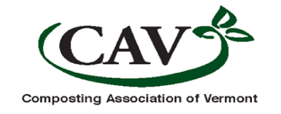Reducing Fine Sediment and Phosphorus Transport in Ditch Networks Using Compost Filter Socks
Project Overview
The project goal was to demonstrate an effective method to mitigate the unique characteristics of clay soils that contribute to phosphorus (P) loading in surface waters due to small particle size, capacity to attach P through absorption, and the soil’s ability to remain suspended in low velocity flows within ditch, stream and river networks.
Compost Filter Sock Installation Photos
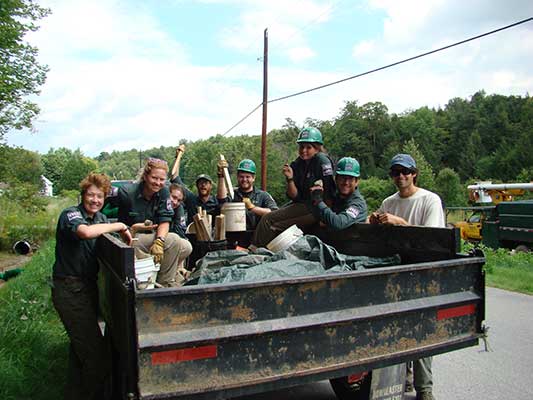
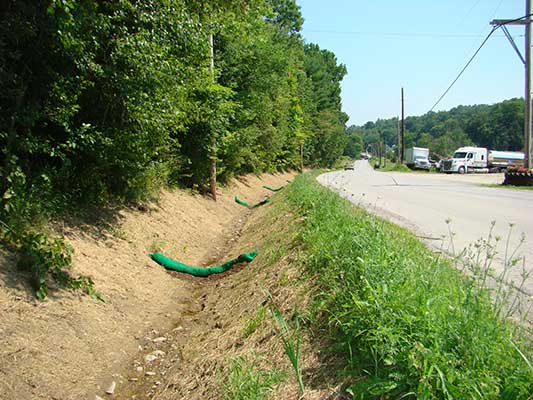
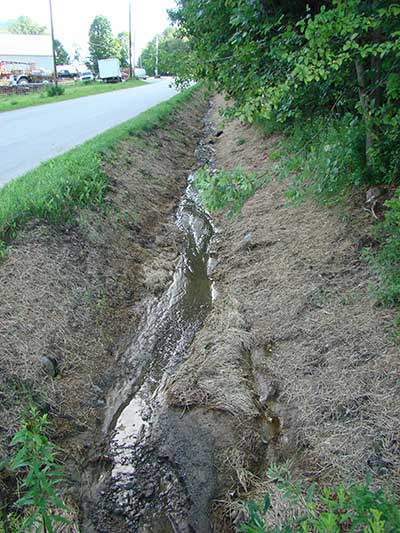
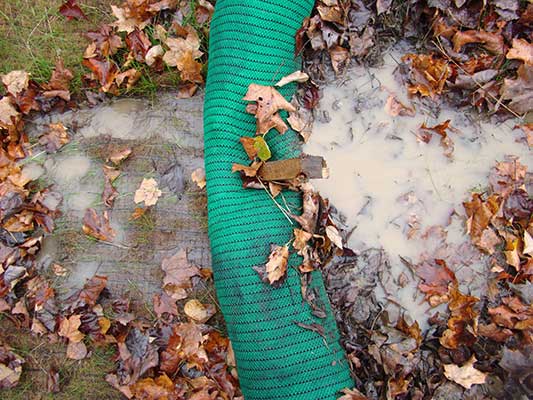
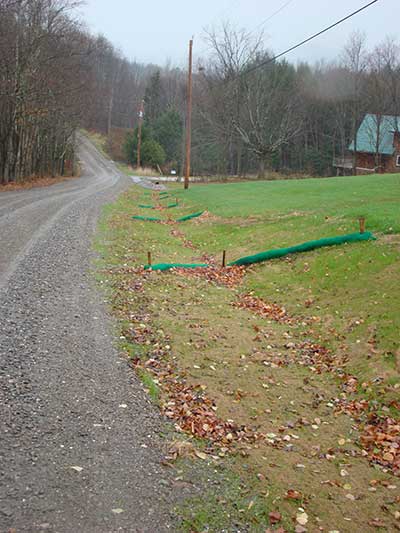
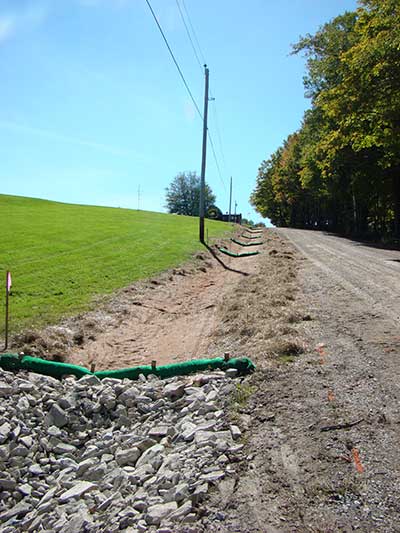
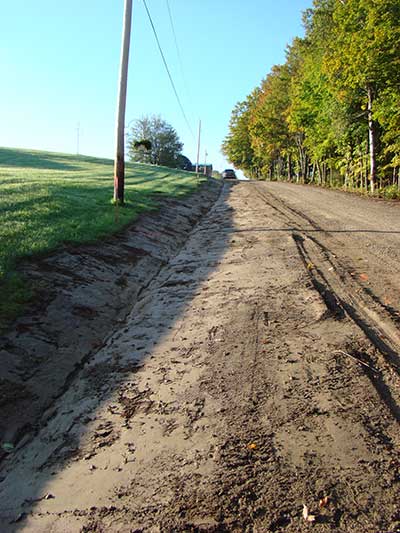
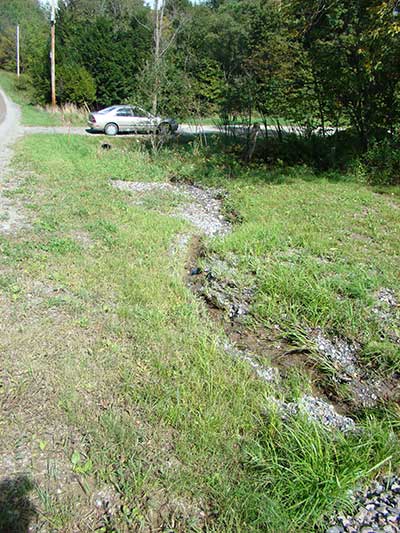
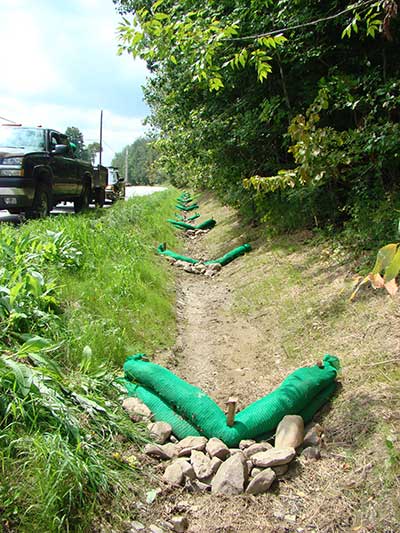
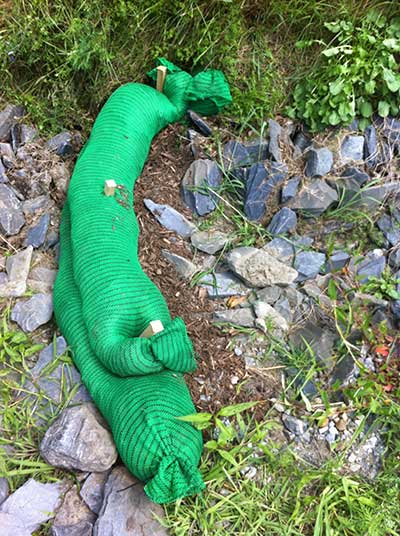
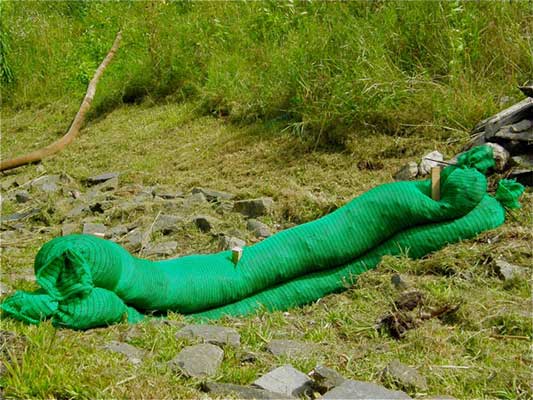
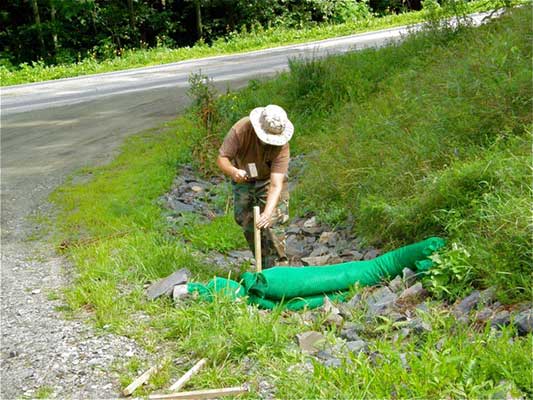
Compost Filter Socks (CFS) are a Best Management Practice (BMP) to increase the capture of fine sediment and P in ditch networks. The practice can supplement current BMPs that effectively capture coarse sediments with stone check dams, but not fine sediments that pass through the voids in the stone. CFS can also be used alone where stone dams are not practical and are even more effective in combination with other practices such as buffers. All but one of the project sites are on Franklin County farms and along town roads in impaired subwatersheds of the Lake Champlain basin. The use of CFS, though approved by the US EPA as a BMP, has not been widely used in agricultural settings or by Vermont municipalities. This is due in part to a lack of awareness about the practice.
We installed 3,000’ of CFS through contractors and volunteers. Volunteers from the Mississquoi River Basin Association participated in at least half of the installations as well as crews from the Vermont Youth Conservation Corps. As part of the project we also partnered with Better Back Roads to offer a workshop that included site visits to demonstration locations and hands-on experience installing CFS.
Reducing erosion and controlling phosphorus and nutrient runoff from agricultural lands typically requires years of rebuilding depleted soils with poor physical properties. In the interim, successful BMPs rely on a multi-barrier approach that traditionally has included buffers, stone check dams, and now increasingly, paying farmers to cover crop after corn harvests and seed down critical areas to permanent hay. Even with these practices, fine sediments, carrying a proportionally greater share of phosphorus continue to negatively impact Vermont’s water quality. This project has helped educate hundreds of Vermonters about how compost products can mitigate this chronic man-made ecological systems failure.
Additional Resources
Workshop Powerpoint Presentation
Maintaining Ditch Networks and Healthy Streams: Using Compost Filter Socks (CFS) to Manage Erosion and Silting in Ditches by Brian Jerose (8 MB PDF)
Installation Field Notes
An account of installation variables and product performance.
Installation Sites Locator Map
Click the blue markers for site location details.
This two-year project was funded by Green Mountain Coffee Roasters, Inc. and the Better Back Roads Program. We are additionally grateful for in-kind support from Bates Farm and Garden, the Mississquoi River Basin Association, the Towns of Enosburgh, Fairfield and Franklin, and the farmers that provided demonstration sites.
